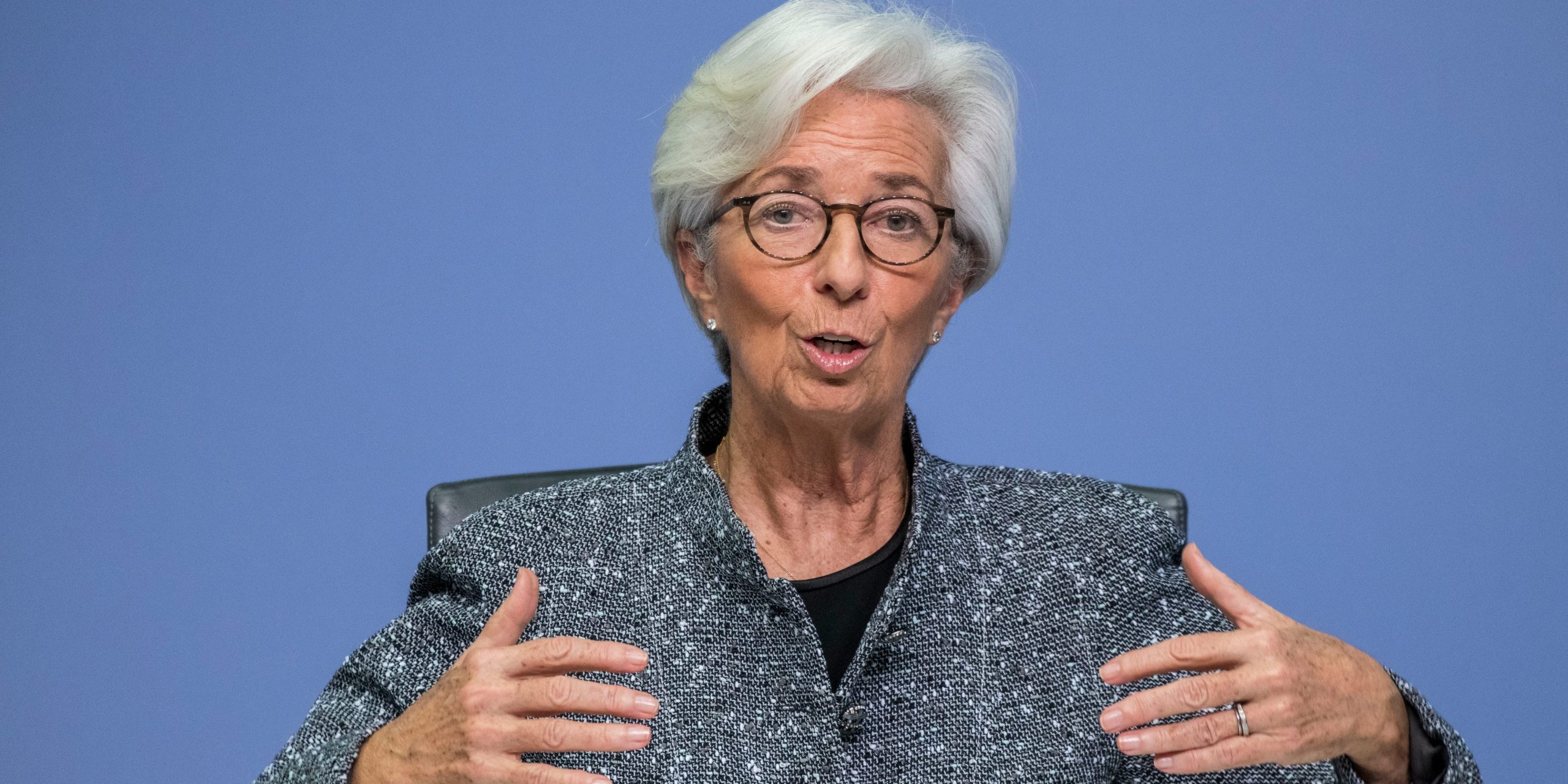
Thomas Lohnes/Getty Images
- Christine Lagarde said the ECB was concerned rising bond yields could weigh on the recovery.
- The ECB said it would step up the pace of bond purchases to try to support lending in the economy.
- Rising bond yields have worried markets in recent weeks – but European yields fell after the decision.
- Sign up here for our daily newsletter, 10 Things Before the Opening Bell.
European Central Bank chief Christine Lagarde said on Thursday the recent rise in bond yields could have an "undesirable" impact on the economic recovery, after the ECB announced it would ramp up the speed of its asset purchases to try to calm the market.
The Eurozone's central bank left its coronavirus bond-buying envelope at 1.85 trillion euros ($2.21 trillion) and its key interest rate at -0.5%. But it said it would "significantly" step up the pace of its purchases within the asset-buying scheme over the next three months.
Lagarde said in a press conference after the decision that the ECB was responding to a rise in "market interest rates" including bond yields, which have climbed rapidly in recent weeks and weighed on market confidence.
"If sizeable and persistent, increases in these market interest rates, when left unchecked, could translate into a premature tightening of financing conditions for all sectors of the economy," she said.
"This is undesirable at a time when preserving favourable financing conditions still remains necessary to reduce uncertainty and bolster confidence, thereby underpinning economic activity."
The ECB's increase in the rate of bond purchases aims to tackle rising market interest rates by increasing demand for securities. Bond yields move inversely to prices.
European bond yields dropped following the announcement, with the yield on the 10-year German bond falling 1.9 basis points to -0.332%. The Italian 10-year yield fell 9.4 basis points to 0.592%.
Rising bond yields have unnerved markets in recent weeks and triggered a sharp sell-off in equities, particularly tech stocks that soared when yields were low.
Stronger expectations of growth and inflation, thanks to the rollout of vaccines and fiscal stimulus, have pushed yields sharply higher. Stronger inflation erodes the return on bonds, making investors demand a higher yield.
US Federal Reserve Chair Jerome Powell has said rising bond yields are a result of a brighter economic outlook, and that the central bank plans to keep policy steady for the time being.
But policymakers in Europe have appeared more concerned, in part because the Eurozone's recovery is expected to be more fragile than that of the United States.
"The just-released statement suggests that the ECB is trying to demonstrate its willingness to put a cap on bond yields without showing signs of panic," Carsten Brzeski, global head of macroeconomics at Dutch bank ING, said in a note.
